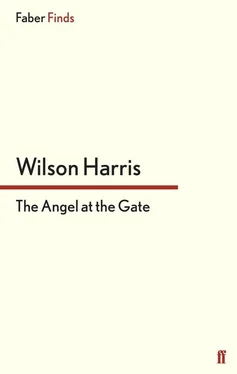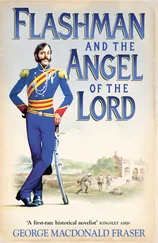Wilson Harris
The Angel at the Gate
For Margaret,
Rowan and Laurence
Who, if I cried, would hear me among the angelic
orders? And even if one of them suddenly
pressed me against his heart, should I fade in the strength of his
stronger existence? Is beauty nothing
but beginning of terror we’re still just able to bear?
From ‘The Duino Elegies’ by Rainer Maria Rilke
There is, it seems to us,
At best, only a limited value
In the knowledge derived from experience.
The knowledge imposes a pattern, and falsifies,
For the pattern is new in every moment
And every moment is a new and shocking
Valuation of all we have been. We are only undeceived
Of that which, deceiving, could no longer harm.
From ‘East Coker’ by T. S. Eliot
The dialectic of the sacred permits all reversibilities; no “history” is final. History is in some measure a fall of the sacred, a limitation and diminution. But the sacred does not cease to manifest itself, and with each new manifestation it resumes its original tendency to reveal itself wholly.
From ‘Shamanism’ by Mircea Eliade
I was approached by Father Joseph Marsden, a year or so before his death in June 1981, to analyse and interpret the automatic writing of his secretary and patient Mary Stella Holiday, an assumed name we adopted to avoid embarrassment for the person concerned. I worked on The Angel at the Gate under his supervision and had virtually finished the book when he collapsed and died suddenly.
The materials with which I worked were drawn not only from automatic narratives but also from notes Marsden had compiled in conversation with Mary Holiday. Some of these conversations were conducted under hypnosis.
There was a series of underlying rhythms in the automatic narratives through which unconscious motivation was mirrored in a variety of objects such as wheel, shawl, bale, chariot, and in flowers and the animal kingdom. I mention this briefly to make clear why these assume the proportions they possess in The Angel at the Gate.
Marsden approved of the procedures I adopted and felt they were consistent with the truths of the narrative. I owe him a great deal in the construction of this “fiction”. He helped me interpret the musical compositions by which Mary it seems was haunted from early childhood. There is no doubt that he assisted her profoundly to steer a path through a desolating period of her life and that her debt to him is enormous. On the other hand, he made no bones of the insights he gained from her and the debt he owed to her which possessed a darker rhythm in past generations when one of his white antecedents had purchased a black antecedent of hers in eighteenth-century Angel Inn behind St Clement’s Church in the Strand.
Mary suffered from a physical and nervous malaise as The Angel at the Gate makes clear. Through Marsden — the medical care he arranged for her and the sessions he provided in Angel Inn which gave scope to her “automatic talents”—that illness became a catalyst of compassion through which she penetrated layers of social and psychical deprivation to create a remarkable fictional life for “Stella” (apart from “Mary”) in order to unravel the thread that runs through a diversity of associations in past and present “fictional lives”.
I was astonished at the sudden, clairvoyant perception of Marsden’s death that comes at a particular moment in her automatic narratives. That clairvoyance is associated with the rhythms of a mirror that seem to enfold “presences” and “absences” around the globe. Marsden submitted himself to her, so to speak, as the target of a variety of masks with which she clothed him but the clairvoyant perception of his death was a strange climax between them in which his “fictional death” matched her “absences of self” through which she descended into a series of characters — their limitations and follies — drawn from associations of childhood in her father’s letters to her mother before she was orphaned or abandoned at the age of seven.
Her insights seem to me extraordinary and the characters she creates I have deemed “fictional” as I have no means of checking the letters and childhood associations from which they may actually derive.
She had, at one stage, contemplated leaving her husband and child but in the end succeeded in placing a variety of stressful legacies into perspective. This gave her a means of coping with despair. Marsden left his private fortune to her. This has now become a source of “good works” and a means of helping victims under threat of “possession” by daemonic powers.
W.H.
Sebastian Holiday read the note in his hand for the twentieth time with pride in his hollow senses when he came to the three phrases—“Wish I were like you. Love you. You and Mary please take care of John”. Then he began from the beginning all over again—
Sebastian,
Have taken 80 no 90 valium tablets. Can’t carry on. Wish I were like you. Love you. You and Mary please take care of John.
Stella
He folded the note with care as if he almost feared the dry ink would blot, and placed it in his breast pocket, then sank into a chair with half-collapsed springs that faced a couch across the room; over the couch a huge Jean Harlow poster had been pinned to the wall.
His eyes were bright, yet curiously blind, body grew hollow in the pit of the chair this late February afternoon; the year was 1981.
The light seeped through the curtained window to give a sheen to the walls of the room that matched Sebastian’s eyes. The Jean Harlow print was suffused with the ghost of the winter sun. Sebastian felt himself descending into that pooled ghost as if everything conspired to mask his innermost emotion. He gripped the arm of the chair as if it were materialized script in a book of riddles; the broken springs on which he sat were less the fabric of a chair and more a half-sunken, half-floating boat. The glimmering pool stroked baby John’s toys (the child was close on three years old) along the wall running at right angles to Sebastian’s boat.
Wooden lorries rather than boats were beached on their sides against a train with which John loved to play. Trains were his greatest amusement. He sometimes converted the lorries into carriages that he pulled and tugged behind an imaginary engine on imaginary tracks around the room. Then there was the skeleton house that John also was fond of, a sophisticated toy, with rooms that could be scanned, or re-assembled, through ribbed apertures, collapsible doors and windows. In one skeleton room a dentist leaned over a sailor, in another a barber trimmed a bearded man, in another guests had assembled for a feast presided over by a cat John had seated at the head of the table. The front door bell suddenly pealed. Mary had forgotten her key. Sebastian arose from the boat of his chair above skeleton house and imaginary train.
“Such a beautiful evening,” Mary said to him at the front door. “It will soon be dark.” She glanced back over her shoulder at the sky which was pale rose and smoke.
“Oh yes,” said Sebastian, but he saw nothing himself except the smudge of an aeroplane drawn across the fluid light above the houses on the other side of Dolphin Street.
Mary was now inside. She closed the door behind her and switched on the light in the corridor leading to the sitting room from which Sebastian had come.
“You needn’t worry about John,” she said gently. “Mother’s keeping him until Stella’s back. I must remember to collect his toys. How is Stella?”
Читать дальше












